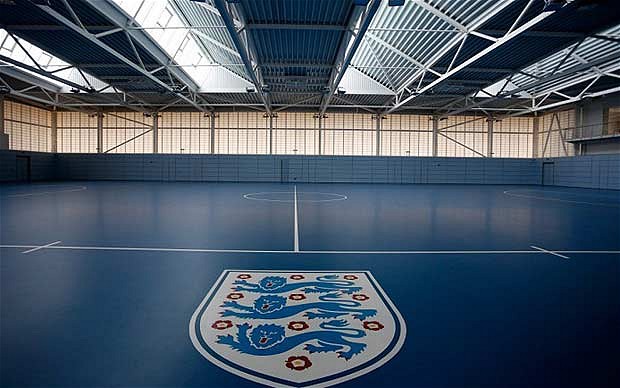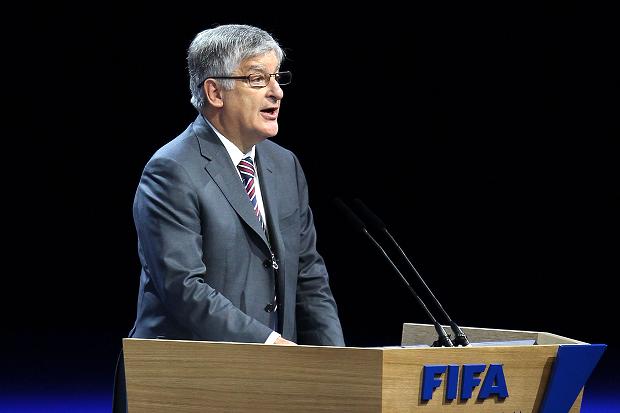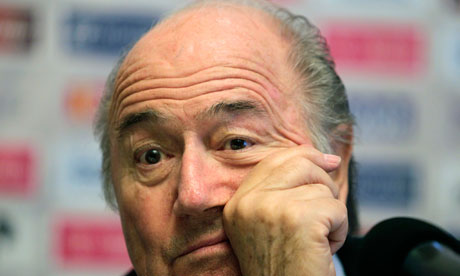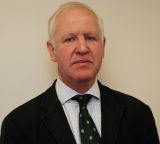Suddenly the 2018 World Cup bidding campaign seems a very long time ago.
At its conclusion in December 2010, relations between the world’s oldest Football Association – whose candidate, England, was among the losers – and FIFA, world football’s governing body, were at a low ebb.
Yet today finds Joseph Blatter, FIFA’s long-serving President, dropping in on St George’s Park, the FA’s new national football centre at Burton on Trent in the English Midlands.
Well might the FIFA boss take an interest in the facility; after all, the organisation he heads is helping to pay for it.
FIFA’s $500,000 (£315,000/€392,000) contribution, approved in March this year, is earmarked for the centre’s medical hub.
I understand that the FA is hoping the facility will in time earn FIFA’s imprimatur as a medical centre of excellence under the world governing body’s F-Marc football for health initiative.
The FIFA payment is part of the so-called Goal football development programme that was launched by Blatter himself in 1999, a year or so after he became FIFA President.
In its 13 years of existence, Goal has channelled a total of $250 million (£157,000/€196,000) into development projects around the world.

Many countries have received multiple contributions: several – including Bahrain, Burma, Ivory Coast, North Korea, Tahiti and the Irish Republic – are onto their fifth Goal-assisted project; two – the Democratic Republic of the Congo and Nicaragua – their sixth.
According to a list provided to me by FIFA, only 10 member associations – British Virgin Islands, Indonesia, Italy, Macao, Poland, Puerto Rico, Qatar, Scotland, Spain and the USA – have still to apply for a Goal project.
Yet this is the first time Goal funding has been allocated to the FA.
In this context, the decision to turn to FIFA for a contribution to St George’s Park seems to me a further indication of a new atmosphere of détente between the FA and the world governing body.
FA chairman David Bernstein began his reign in belligerent mode, calling unsuccessfully in May 2011 for a delay in the election that saw Blatter installed for a fourth term as FIFA President.
Bernstein had urged FIFA’s Congress to “allow time for an additional candidate or candidates to stand and compete in an open and fair election”, arguing that only by doing so would the winner have “proper credibility over the next four years”.

At this year’s FIFA Congress in Budapest, however, the FA chairman’s tone was very different.
“I was very impressed today,” he told reporters.
“There is still much work to be done…but they have now seen the light.”
In his statement in the FA’s annual report, moreover, Bernstein emphasised that the FA had “worked hard to increase its representation at both FIFA and particularly UEFA [the European body],” adding: “We now have healthy levels of influence around both organisations.”
Frankly, this has to be the right approach: no matter how badly one might feel reforms at FIFA are needed, the FA – like any other national body – has a much better chance of moulding the debate from within FIFA’s decision-making structures than outside.
Some might argue, nonetheless, that using FIFA’s money to help pay for the £80 million ($127 million/€100 million) Burton centre is a step too far.
The Goal programme, they might allege, is football’s version of pork barrel politics.
Indeed, my insideworldfootball colleague, Mihir Bose, once memorably described Goal as “the most deeply political project any sports body has ever undertaken”.
I suppose there are two answers to that.
Number one: just suppose, for the sake of argument, that Goal has been a factor in Blatter’s long reign, with recipients of funding feeling inclined to manifest their gratitude by supporting the man who implemented it at election-time.

Well, there aren’t going to be any more election-times for the Swiss master-politician.
At 76 years of age, he truly is, I believe, serving his final term.
Secondly, with 199 member associations now having been awarded at least one Goal project, the programme has been taken up so widely that there seems little to be gained by the FA – which is still engaged in something of a balancing-act with its finances – passing up its chance to join in.
So, just under two years after the emotional finale of that extraordinary World Cup bid double-header in Zurich, the state of FIFA-FA relations is well on the way to being stood on its head.
Today’s formalities in the Staffordshire countryside may put the seal on this new – and potentially significant – entente cordiale of football.
David Owen worked for 20 years for the Financial Times in the United States, Canada, France and the UK. He ended his FT career as sports editor after the 2006 World Cup and is now freelancing, including covering the 2008 Beijing Olympics, the 2010 World Cup and London 2012. Owen’s Twitter feed can be accessed by clicking here.

